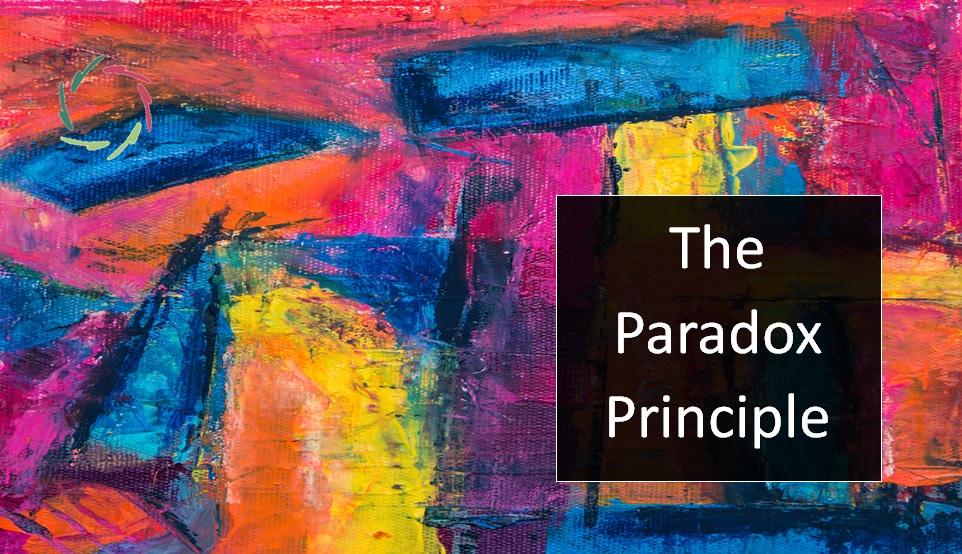The Paradox Principle

The more, the worse, related to the humanly not seeing oneself in-depth. Many consequences of this are the opposite of durability.
I dislike contradictions. I like a good paradox.
A contradiction is about two statements that cannot both be true, yet they are both brought as true. There is either confusion or a lie involved.
In a paradox, both statements are true, although it can be challenging to see. There is a seeming contradiction that can get solved in due time and with due effort.
The basic human paradox
This most quintessential paradox to date is related to the basic cognitive illusion. [see: “The Basic Cognitive Illusion“] It’s about the seer not seeing the own seeing. It’s like glasses suddenly becoming conscious and thinking they do all the seeing, not the person on whose nose they are placed.
This is about the challenging difference between mere-ego and total self.
The Paradox Principle (my term)
This principle engenders situations in which the basic paradox leads to solutions that only enhance the problem in a way that is not comprehensible as long as one remains stuck in the basic cognitive illusion. This is, when something is understood conceptually but works subconceptually.
Like this:

Note the thick horizontal line in the middle, being the abstract border between conceptual and subconceptual.
In many cases, the consequence is that one keeps pulling or pulls even harder trying to solve the problem. The proposed solution is generally counter-productive. More of the same will lead to more of the same, not reaching any better result.
Despite nice words and intentions, ‘it’ will not happen next time either.
This frequently happens in healthcare, especially in managing chronic psycho-somatic diseases and at the detriment of all concerned, although it shows otherwise at the surface.
It also shows in other domains of high, human-related complexity, for instance, at the level of ideologies: [see: “How to Unify Ideologies“]
Extremely costly
Financially and humanly, the cost can be gigantic. For instance, by not seeing what happens under the line of the above image, the cause of the vanishing solution ‘surely must lie with someone else… the enemy!’ Wars could have been prevented with some better insight into this.
The possible cost in healthcare is all too obvious ― maybe not its immense scale.
An additional problem is that while tearing at the rope above the line, it becomes even more challenging to see the situation as it is. It’s hard sometimes to acknowledge the futility of much already invested energy and suffering. This way, the longer one doesn’t see, the more difficult it may become to see.
The reverse of durability
One way or another, every present-day problem with durability is deeply related to the Paradox Principle. Therefore, I don’t think we will solve any of the durability problems without insight into this.
Psychotherapy should be of help, but its doors are pretty much closed. [see: “Psychotherapy’s Doors“] This way, unfortunately, it doesn’t help solve the problem but even deepens it.
This is existential.


